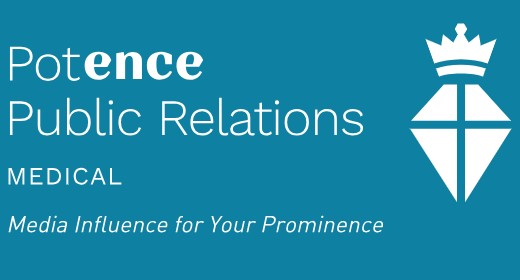Cancer, with its myriad forms and complexities, is a diagnosis that can turn lives upside down in an instant. In the face of such a daunting challenge, patients and their families rely heavily on the information and guidance provided by healthcare professionals and the broader medical community. However, another significant source of information for many patients is the marketing of cancer products—ranging from medications to alternative therapies. While marketing can be a valuable tool for educating patients about available options, it also poses risks, particularly when it lacks transparency and undermines trust. In the realm of cancer product marketing, empowering patients requires a concerted effort to prioritise transparency, foster trust, and promote informed decision-making.
Transparency: The Foundation of Informed Choices
Transparency is essential in cancer product marketing to ensure patients have access to accurate, comprehensive, and unbiased information. This begins with clear and truthful communication about the benefits, risks, and limitations of any given product. Pharmaceutical companies, healthcare providers, and regulatory bodies all play pivotal roles in upholding transparency standards.

Ensuring Compliance and Transparency in Pharmaceutical Promotions
Pharmaceutical companies must adhere to rigorous guidelines when promoting their products, ensuring that promotional materials are backed by scientific evidence and free from exaggerated claims. Moreover, disclosing potential conflicts of interest and funding sources is crucial for maintaining credibility. By providing patients with transparent information, pharmaceutical companies can empower them to make informed decisions about their treatment options.
Fostering Open Communication and Informed Decision-Making in Patient Care
Healthcare providers also have a responsibility to facilitate transparency by discussing treatment options openly with patients and addressing any questions or concerns they may have. This includes explaining the rationale behind recommended treatments, discussing potential side effects, and exploring alternative approaches when appropriate. Establishing an open dialogue based on trust and mutual respect is key to empowering patients to actively participate in their care.
The Role of Regulatory Bodies in Cancer Product Evaluation
Regulatory bodies, such as the Food and Drug Administration (FDA) in the United States, play a critical role in ensuring transparency and safeguarding public health. These organisations are tasked with evaluating the safety and efficacy of cancer products before they can be marketed to the public. By enforcing strict regulations and monitoring compliance, regulatory bodies help prevent misleading or deceptive marketing practices, thereby promoting transparency and protecting patients.
Building Trust: The Cornerstone of Patient-Centric Care
Trust is fundamental to the patient-provider relationship and serves as the cornerstone of patient-centric care. When facing a cancer diagnosis, patients place their trust in healthcare professionals to provide them with accurate information, compassionate support, and personalised treatment recommendations. However, trust can be eroded when marketing tactics prioritise profit over patient well-being or when patients feel misled or manipulated.
Establishing Trust in Cancer Products
To build trust in cancer product marketing, transparency must be coupled with integrity, empathy, and a patient-centred approach. Healthcare providers must prioritise the best interests of their patients above all else, ensuring that treatment recommendations are based on sound medical evidence and tailored to each patient’s unique needs and preferences. By fostering open communication and demonstrating empathy and compassion, providers can strengthen trust and empower patients to actively participate in their care decisions.
Building Trust in Pharma: Ethical Marketing and Patient-Centric Approaches
Pharmaceutical companies also have a role to play in building trust by prioritising ethical marketing practices and demonstrating a commitment to patient safety and well-being. This includes investing in research and development to bring innovative and effective cancer treatments to market, conducting clinical trials with integrity and transparency, and engaging with patients and advocacy groups to understand their needs and priorities.
Promoting Informed Decision-Making: Empowering Patients
Empowering patients in their cancer treatment journey requires more than just providing them with information—it entails actively involving them in the decision-making process and respecting their autonomy and preferences. Healthcare providers should engage patients as partners in their care, encouraging them to ask questions, express their concerns, and share their treatment goals and priorities. Shared decision-making frameworks, such as decision aids and patient decision aids, can facilitate this process by providing patients with evidence-based information and helping them weigh the pros and cons of different treatment options.
In addition, to traditional medical treatments, patients may also consider complementary and alternative therapies as part of their cancer care. While some of these therapies may offer potential benefits, others may lack scientific evidence or even pose risks to patients’ health. It is essential for patients to approach these options with a critical eye, seeking reliable information and consulting with their healthcare providers before making any decisions.
In conclusion
Empowering patients in the realm of cancer product marketing requires a concerted effort to prioritise transparency, foster trust, and promote informed decision-making. By upholding rigorous standards of transparency, healthcare providers, pharmaceutical companies, and regulatory bodies can ensure that patients have access to accurate, comprehensive, and unbiased information about their treatment options. By building trust through integrity, empathy, and patient-centred care, providers can strengthen the patient-provider relationship and empower patients to actively participate in their care decisions. Ultimately, by working together to prioritise patient well-being and autonomy, we can empower patients to navigate their cancer journey with confidence and resilience.
Empowering Patients: Building Trust and Transparency in Cancer Product Marketing
XML link | All feed

